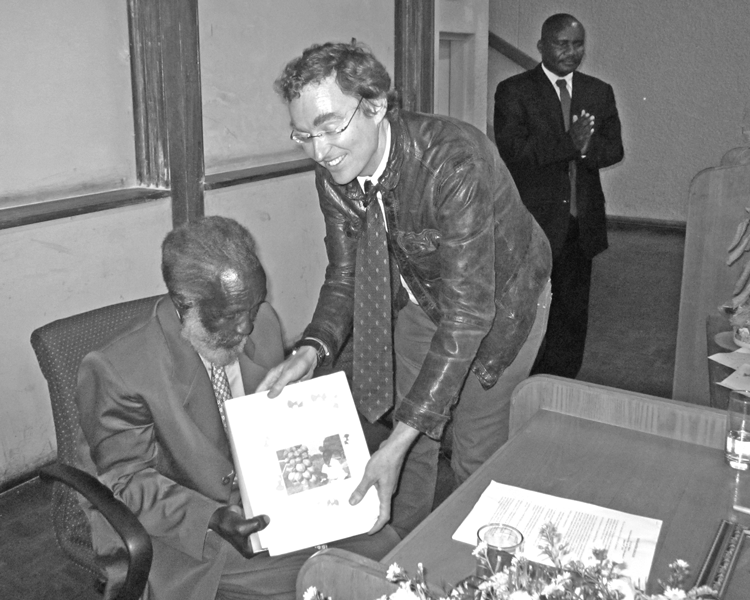This weekend I read one Jonathan Kadzura’s article in the Sunday Mail titled: Time to reclaim what is ours. He was rightfully bemoaning the fact that opportunities for growth of local businesses by local people were increasingly shrinking because of “petty so-called international investors” who have invaded our retail industry. According to Kadzura, we are in a really pathetic situation where this has seen foreigners sell our very own orange crush (Mazoe) to us at astronomical prices. I agreed with him until a few paragraphs later he started waxing lyrical about the nobleness of the indigenization drive that our “educated but colonized minds” don’t seem to be interested in upholding, but that is another story. Talk about having one’s own stuff sold to you at astronomical prices, I was reminded of an incident that happened with my cell phone last Friday.
I was on my way to a popular lodge in Glen Lorne for a meeting when I stopped briefly at Town and Country supermarket for a few supplies. Flustered and in a major hurry because I was already 15 minutes late, I never realised that I didn’t have my cell phone only until I was getting ready to settle for the meeting. I searched everywhere, from my laptop bag to the car until that panicked feeling you seem to get especially when you can’t find your phone set in. I immediately borrowed a phone and dialled my number; meanwhile I was listening hard for it in the car. For a long time, it alternately rang continuously, was engaged or the call was rejected. I started to really panic, but I kept dialling.
Eventually, a man’s voice came on the phone and my mind suddenly went blank. What do you say to someone who evidently picked up your phone? Did I drop it or he nicked it off me? In that same moment, I managed to squeeze in a thought that this was probably just one of those annoying cross-lines that have recently become a regular accompaniment to dialling Econet numbers. Somehow I managed to mumble that I was looking for my phone and I would like it back please.
What followed was a conversation I am bound to remember for a long time. He acknowledged that yes he had my phone, provided his name and address and said I should know he was just an honest man, simple man – a security man at that and he had done me a huge favour. He was therefore requesting that I bring a monetary reward for it. Nothing less than $20, he said.
Cleary, the man underestimated my ability and capability to thank him sufficiently and therefore sought to lay out terms well in advance. My next thought was; what kind of a Good Samaritan was this who demands ransom for the return of my phone?
Initially, I didn’t know how to react. Obviously, my phone – a Sony Ericson W350 was worth a whole lot more than $20 and certainly, I was grateful that the man had been honest enough to give it up. But for him to demand payment for it was just something else. I mean, I think if one has been humble enough to recover somebody’s property, they can extend that humility to waiting for that person to offer a reward as and when they feel like, and for an amount they are comfortable with. In the end I just thought to give him the money and get it over with. However, because I couldn’t leave my meeting, I gave the details to my partner and asked him to go and get the phone, and of course, remember to carry $20. Less than an hour later, the police had somehow been involved and I found myself in a position where I had to provide evidence that the man had indeed demanded payment. Knowing men and their big egos, a dispute had somehow erupted between my partner and the Good Samaritan, with the former insisting that he shouldn’t have demanded any specific payment but should have just waited to be rewarded accordingly. The police had it that according to the law, if one picks up valuable property like a phone; they are supposed to hand it in at the nearest police station. It is also illegal to demand a reward for recovering lost property. They called it solicitation. The police were particularly interested in this case because, from their reasoning, it was important to discourage such behaviour to avoid situations where people nick valuables off others only to demand payment for their safe return. By this time the man had realised the folly of what he had done and handed over my phone, claiming that he had just been joking. Clearly in bad taste.
Later on I went back to my meeting and left the police dealing with the issue. No sooner had I started settling back in did I receive a text message from someone claiming they were the phone-picker’s employer. They were essentially accusing me of being an ingrate who let the police loose on an innocent old man who had jocularly asked for money for a drink. Well, first of all I had nothing to do with his ending up at the police and secondly, the man had demanded payment and prescribed an exact amount too. However, I just texted back and told her she could go to hell for judging me and that next, the police would be coming for her for harassment. But then again, under any circumstances, does it make any sense to pay heavily for what is already yours to someone else who somehow managed to get their hands on it?










